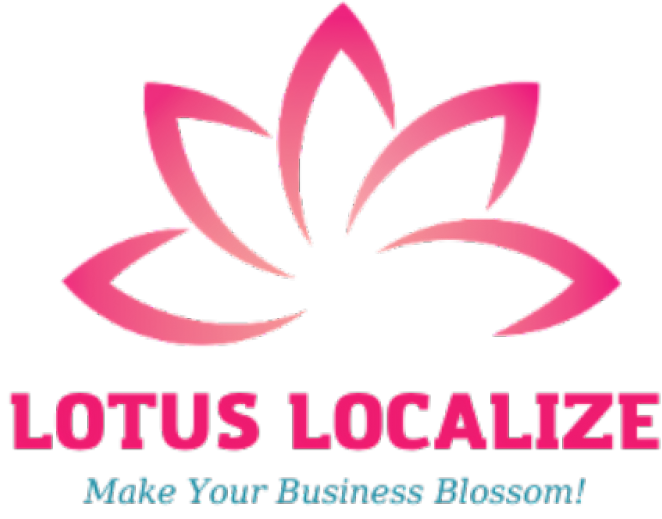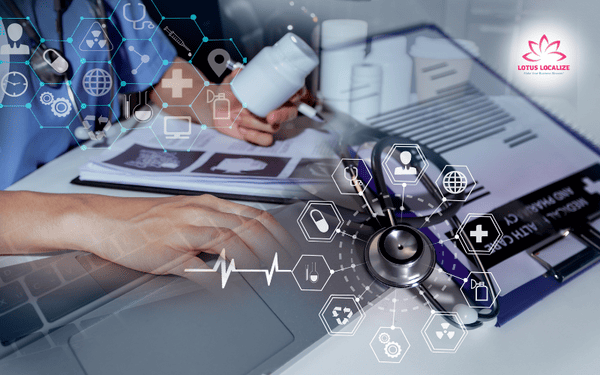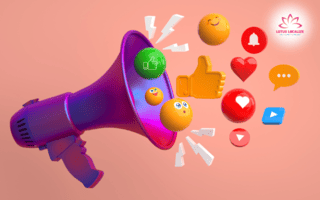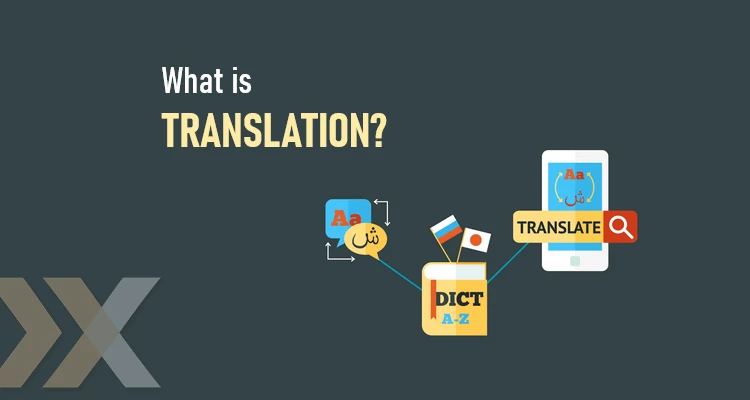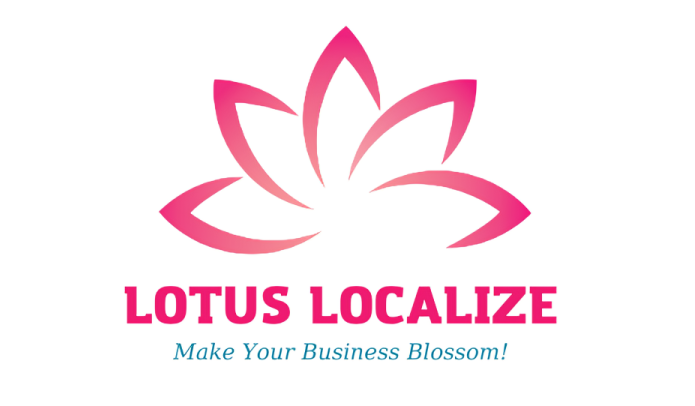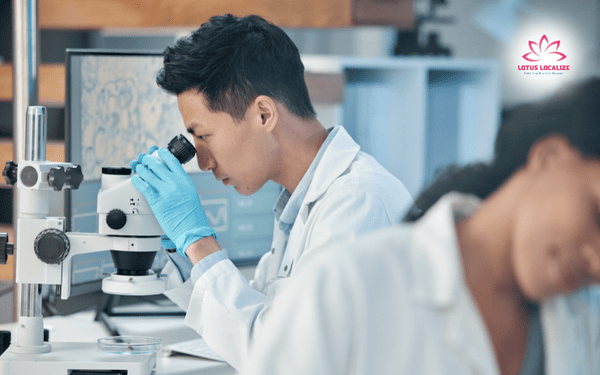
How biomedicine translation drives healthcare innovation worldwide
Biomedicine translation plays a vital role in the development of global healthcare, enabling medical knowledge, research, and innovations to be shared across linguistic and cultural borders. As the world becomes more interconnected, precise and culturally sensitive translation services have become increasingly important. Biomedicine translation bridges gaps in language, allowing for the rapid dissemination of breakthroughs in medical science, ultimately improving patient care and healthcare systems worldwide. This essay explores the significance of biomedicine translation, the challenges translators face, and the evolving role of translation in global healthcare.
What is biomedicine translation and why is it essential?
Biomedicine translation is the specialized process of converting scientific, medical, and healthcare-related documents from one language to another. It involves translating clinical research, medical guidelines, pharmaceutical documentation, and patient care instructions, ensuring that vital information is communicated effectively to all healthcare stakeholders, regardless of language or cultural background.
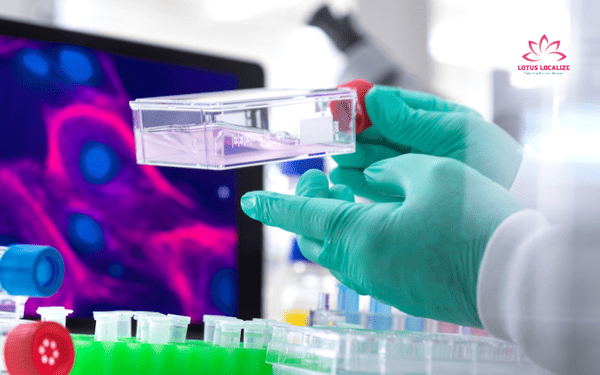
Biomedicine translation is essential because medical breakthroughs, clinical trial results, and pharmaceutical innovations need to be accessible globally. With healthcare professionals and researchers across the world needing to share knowledge and collaborate on advancements, accurate and timely translation ensures that this knowledge is available and actionable in different regions.
- Role in global collaboration:
Biomedicine translation facilitates collaboration between researchers, pharmaceutical companies, and healthcare professionals from diverse linguistic and cultural backgrounds. This fosters the exchange of ideas and speeds up the development of new treatments, improving patient outcomes worldwide.
- Critical for medical progress:
Translating medical and scientific content accurately ensures that critical information about diseases, treatments, and drug developments reaches all relevant parties. Without precise translations, the global application of medical advances would be delayed, limiting their impact on public health.
Biomedicine translation is a cornerstone for global health, enabling the seamless exchange of medical knowledge and ensuring that innovations reach all corners of the world.
Read more: Understanding medical localization: A comprehensive guide
The importance of biomedicine translation in modern healthcare
Biomedicine translation is essential for enhancing healthcare accessibility, improving patient care, and driving global medical progress. It plays a pivotal role in ensuring that healthcare providers, researchers, and patients can access the latest medical research and treatment protocols in their native languages.
- Improving healthcare access:
Translating medical documents into various languages ensures that healthcare providers around the world have access to the latest research and treatment protocols, enabling them to make informed decisions based on current, globally recognized medical standards.
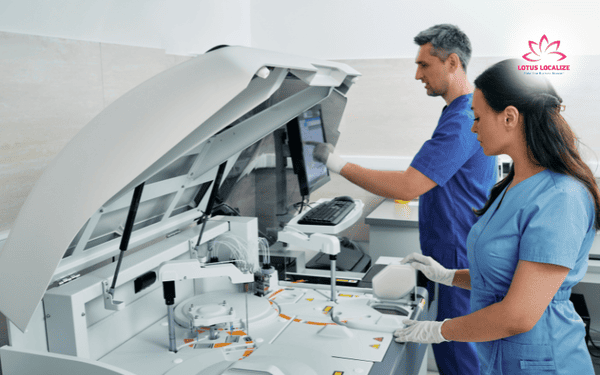
- Enhancing patient care:
Access to translated health information empowers patients to make informed decisions about their care. When medical materials are available in multiple languages, patients are better equipped to understand their treatment options, medication instructions, and potential side effects, leading to improved compliance and health outcomes.
- Expediting pharmaceutical approvals:
Pharmaceutical companies must submit translated documentation to regulatory agencies in different countries for drug approval. Biomedicine translation ensures that clinical trial results, safety information, and product instructions are accurately conveyed to regulators, speeding up approval processes and ensuring that safe, effective treatments reach patients more quickly.
- Reducing healthcare disparities:
Biomedicine translation helps mitigate health disparities by ensuring that all populations, regardless of language or geographical location, have access to the latest medical knowledge and treatments. This contributes to more equitable healthcare systems and improves overall health outcomes, especially in underserved communities.
Biomedicine translation is crucial for improving healthcare access, reducing disparities, and accelerating the global dissemination of medical advancements.
Challenges faced by biomedicine translators
Translating biomedicine documents is a complex task that requires expertise not only in language but also in medical science. Translators face several challenges, and the stakes are high, as errors in translation can have serious consequences for patient safety and treatment efficacy.
- Complex terminology and precision:
Biomedicine translation involves technical terms and concepts that require both linguistic precision and scientific knowledge. Even minor mistakes in translating complex terms could result in misinterpretation of medical treatments or clinical guidelines, which could harm patients or lead to ineffective treatments.
Solution: To tackle the complexity of technical language, biomedicine translators should undergo specialized training in medical terminology and clinical practices. This will enhance their ability to accurately translate specialized terms and ensure precise communication of medical concepts. Additionally, collaborating with subject matter experts or consulting medical professionals when in doubt can help resolve ambiguities.
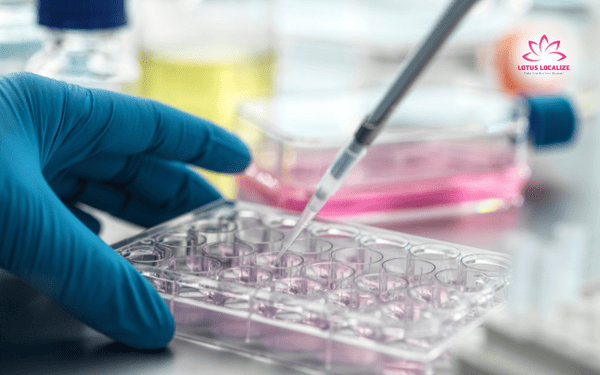
- Cultural differences in medical practices:
Medical practices, health beliefs, and patient expectations can differ significantly across cultures. Translators must be aware of these cultural differences to ensure that translated materials are both accurate and culturally appropriate. For instance, a treatment method may be understood differently or have varying levels of acceptance depending on cultural context, and this must be reflected in the translation.
Solution: To address cultural differences, translators must gain a deep understanding of the cultural context of both the source and target audiences. A strong cultural sensitivity ensures that the translated content resonates appropriately, reflecting local health beliefs and practices. Regular consultation with local healthcare professionals or cultural experts can help ensure that the translation maintains cultural relevance without compromising medical accuracy.
- Regulatory requirements:
Biomedicine translation must meet strict regulatory standards in many countries. Translators need to be aware of these requirements to ensure that translated content complies with local laws and regulations. This includes adhering to guidelines set by regulatory agencies such as the U.S. Food and Drug Administration (FDA) or the European Medicines Agency (EMA).
Solution: A key solution to regulatory challenges is ensuring that translators stay up-to-date with the latest regulatory requirements in different countries. By being familiar with guidelines set by regulatory bodies like the FDA, EMA, or other local authorities, translators can ensure compliance. Maintaining a close working relationship with regulatory consultants or legal professionals in the healthcare field will also help guarantee that translations meet the necessary legal standards.
The challenges faced by biomedicine translators highlight the importance of expertise, precision, and cultural awareness in delivering accurate and impactful translations.
Read more: How biotechnology translation drives global health advancements and innovation
What makes a great biomedicine translator?
The role of a biomedicine translator requires not just fluency in both source and target languages, but also a deep understanding of medical concepts, research methods, and healthcare terminology. The translator must possess several key qualities to excel in this specialized field.
- Expert knowledge of medical terminology:
A great biomedicine translator has an in-depth understanding of medical terminology and clinical practices. This ensures that complex medical concepts are accurately translated without distortion or loss of meaning.
- Attention to detail:
Precision is critical in biomedicine translation. A small error can have major consequences in healthcare, so a great translator is meticulous, paying close attention to the accuracy of every word and phrase.
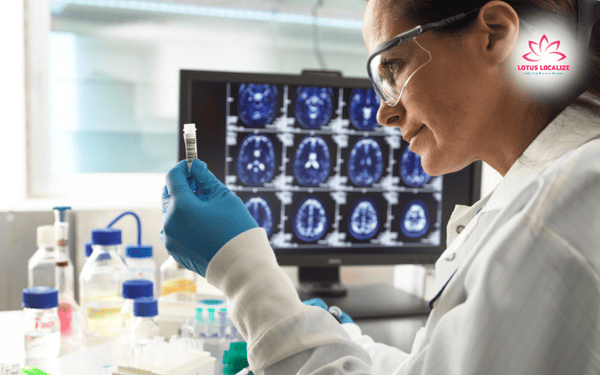
- Cultural sensitivity:
A top-tier translator understands the importance of cultural context. They ensure that the translation resonates with the target audience while maintaining the integrity of the medical content. This cultural competence is essential when translating patient care documents, health communications, and clinical trial results.
- Regulatory awareness:
An excellent biomedicine translator is familiar with the regulatory frameworks in different regions and ensures that all translated materials meet these requirements. This is especially important for documents submitted to regulatory bodies for drug approval or clinical trial oversight.
Expertise, attention to detail, and cultural competence are key qualities that define an exceptional biomedicine translator.
The future outlook and advancements in biomedicine translation
As healthcare continues to evolve globally, the role of biomedicine translation will become more integral in bridging language barriers and sharing life-saving medical information. The future of this field will be shaped by both technological advances and the increasing need for rapid, accurate translations. Despite technological improvements, human expertise will remain indispensable for the quality and precision of medical translations.
- Embracing new technologies: In the future, the integration of machine translation, artificial intelligence (AI), and machine learning (ML) will revolutionize biomedicine translation. These technologies will make it easier to handle large volumes of text quickly, saving time and cutting down costs. However, due to the complexity and sensitivity of medical information, AI will act as a support tool, not a full replacement for human translators.

- The enduring need for human expertise: While AI and machine translation will continue to grow in use, the need for skilled human translators will never fade. Experts will still be essential for translating complex medical content, ensuring that translations are not only accurate but also culturally relevant. Human translators will handle the nuances of medical terminology and high-stakes content that require precision and expert knowledge.
- Increased global collaboration: As more international collaborations take place in the healthcare sector, biomedicine translation will play a pivotal role in connecting researchers, healthcare professionals, and pharmaceutical companies across the globe. The future will see a more interconnected world where sharing medical information and research is seamless, speeding up innovation and treatment development.
- A rise in demand for multilingual healthcare content: The demand for biomedicine translations in multiple languages will grow as healthcare becomes more global. This includes everything from clinical trials and drug safety data to patient education materials. Fast and accurate translation will be vital to ensuring that new medical breakthroughs and resources are available to a broader audience, ultimately improving global access to healthcare.
In the future, the combination of technological advancements and human expertise will continue to drive the field of biomedicine translation forward, ensuring the precision and cultural relevance of translations while making healthcare information more accessible worldwide.
In conclusion, biomedicine translation plays a vital role in advancing global healthcare. It enables the seamless exchange of medical knowledge and innovations, ultimately improving patient care, expediting the approval of new treatments, and fostering international collaboration. The future of biomedicine translation will be shaped by technological advancements, but the expertise of human translators will remain crucial to maintaining the highest standards of accuracy, cultural sensitivity, and regulatory compliance.
Lotus Localize offers professional translation services for various specialized industries: life science translation, technology translation, manufacturing translation, e-learning translation, legal translation,… ensuring your message resonates—whether in writing or speech. Let us help you bridge linguistic gaps and connect with audiences worldwide.
Contact us today at our hotline or Whatsapp: + 84 866 224 968 or visit the websites: dichthuathoasen.com/en/. Let Lotus Localize accompany you in bringing products, people, and culture to the global stage, and together, we’ll create miracles!
📩 Ready to expand your global impact? Contact us today to explore our professional biotechnology translation services!
QUALITY PROMISE
At Lotus Localize, we are dedicated to delivering high-quality services and ensuring the utmost satisfaction in every client project. Our team of translators and staff consistently exert effort and adhere rigorously to quality management procedures. This commitment guarantees that each project progresses seamlessly, meets deadlines, and exceeds our clients' expectations.
